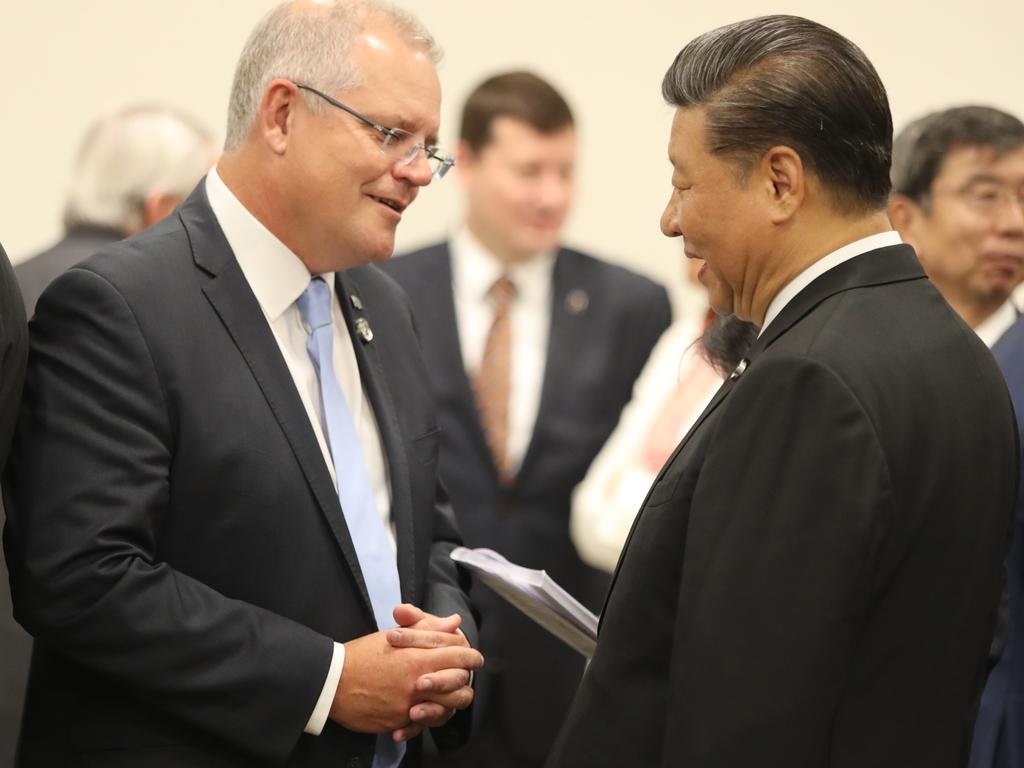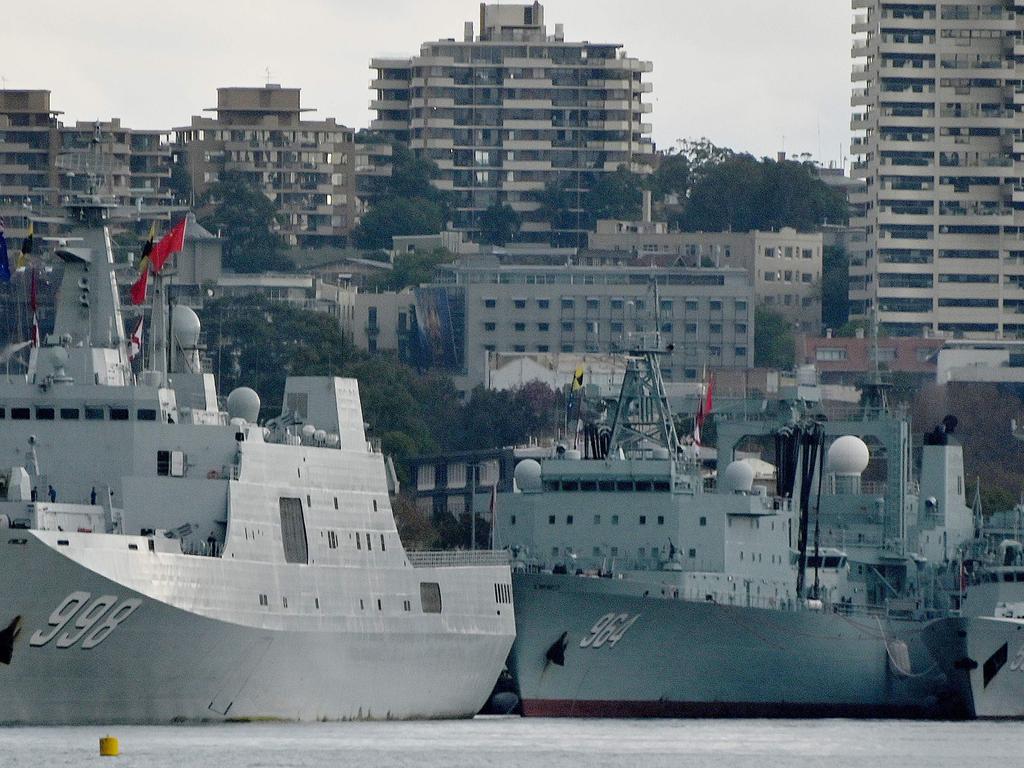China trade war: Why does Beijing hate Australia and the US?
It’s most a clash of civilisations and it’s not a clash of East and West traditions. This is why China makes the US and Australia a target.
It’s not a clash of civilisations.
It’s not Christianity versus Confucianism.
It’s not thousands of years of Eastern tradition competing with that of the West.
Despite intense efforts to justify its hostile behaviour as such, Beijing’s belligerence towards Australia and the West is about ambition.
China has entered a “new era” Chairman Xi Jinping declared in 2017. It will now “take centre stage in the world”. And the supreme leader of the world’s top superpower will be himself.
Xi’s been pushing a narrative of China having been “humiliated” by the West over the past 200 years to win public support.
It’s now time for “national rejuvenation” and for China to become the “global leader” he proclaims. It’s time for Chinese “wisdom” to form the basis of “a community of common destiny for all mankind”.
RELATED: Australians urge shift from China reliance
RELATED: US wants China in strategic arms talks
Behind it all, analysts argue, is an authoritarian leader preoccupied with the survival of his regime.
This makes Mr Xi “allergic” to Western criticisms of his oppressive policies.
The Chinese Communist Party desperately does not want his people to think the grass is greener on the democratic side of the fence. So, Beijing has set out to reshape the global order in a way that reflects Mr Xi’s interests and is more tolerant of his authoritarian rule.
That makes the United Nations a target.
That makes Australia – and any nation that disagrees with Mr Xi’s methods – a target.

Analysts argue Beijing’s bellicose behaviour isn’t a clash of civilisations.
Instead, it is Pavlovian conditioning.
It is projecting a message that, if you cross Beijing in any way, you’ll be punished – hard.
The intention is to make Australia’s – and the world’s – decision-makers hesitate. Every time someone asks “how will Beijing react to this?”, that’s a strategic victory for Mr Xi.
But such intimidation has produced a “hardening” of Western resolve against Beijing.
RELATED: China goes ballistic after Trump threat
“Many factors are at work in the hardening,” writes ASPI researcher Graeme Dobell. “Not least is the change wrought by Xi Jinping. The leader for life proclaims the values of his techno-authoritarian state with the Chinese Communist Party at its heart. The US has accepted that Xi means what he says and does what he means.”
And he’s saying a lot of threatening things: The South China Sea is Beijing’s personal lake. Taiwan will be reintegrated with the mainland by whatever means necessary. Japan’s Senkaku and Ryukyu islands really belong to China. Western values are worthless.
Beijing insists it has no enemies.
Yet its defence spending increased 6.6 per cent even as its economy contracted under the COVID-19 pandemic. New warships and aircraft are being built at an incredible rate. It’s training exercises are extensive and ongoing. Investment in new technology seems almost limitless.

But analysts point out that much of Beijing offensive diplomacy isn’t targeted at the West.
It’s actually intended for an internal audience.
It’s about maintaining the internal narrative that Mr Xi is all-knowing, all-powerful and benevolent.
Beijing’s dystopian propaganda machine is unlike anything ever seen before. Censorship is instantaneous and all-pervasive. Every message is tightly controlled. And under Mr Xi’s overwhelming surveillance state, the most minor breach of minor rules will incur a deduction on your invisible “social score”.
It’s all there to emphasise one point: Mr Xi’s in charge.
And his message: “No force can stop Chinese people and nation from marching forward.”




